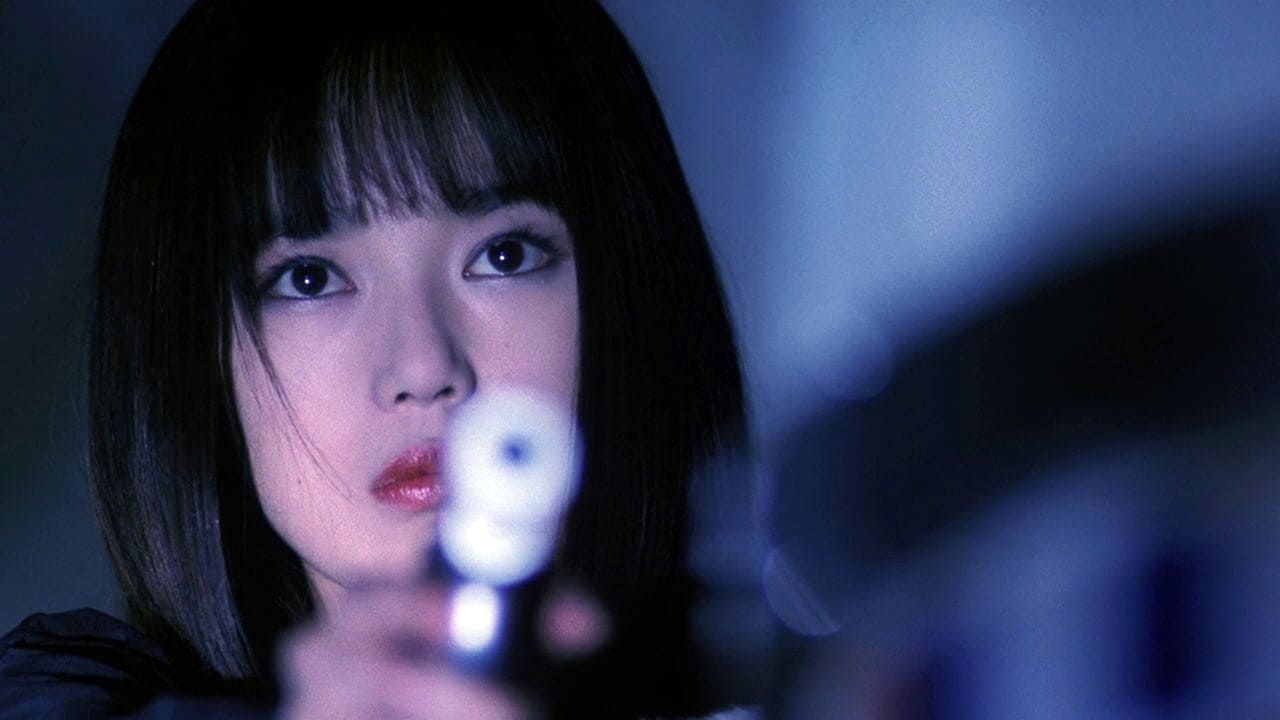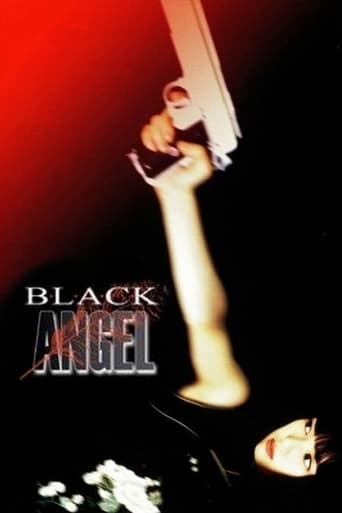

A nice memory of my teenage life when I saw this film on TV with my friendsBlack Angel is very dark thrillingBut also exiting feeling, one didn't know what will happen for poor Ikko and her quest to find her identity or who killed her family.But there are some awkward scenes and some scenes are too violent but however there are some nice moment too, like when Ikko dance with her friend.Bevare of some violent scenes for sensitive viewers but for those who love action films and thrillers is a must see
... View MoreFor starters let me say that you usually got what you pay for, and purchasing this movie won't be one of your biggest expenses. The DVD itself comes in a paper sleeve. To give further rise to the customer's suspicion, the front cover claims that this movie would be Takashi Ishii's response to Quentin Tarantino, while the back states that The Black Angel served as a pattern for Quentin's Kill Bill. Just pick the one you like the most. Furthermore, take this line: 'Accompany the last assassinatrix to her final mission.' Why on Earth would our heroine be the last female to kill for money? Will she do something that makes her job less attractive to other females? Will we see an atomic blast in the end which tears our little planet, and its entire population with it, apart?Fans of Jericho be advised, you won't see ascending mushroom clouds this time. And the Black Angel is not a carrier adviser. It also turns out that she is not killing for money, but instead, out of revenge. Luckily or not, she is the only one whose motives are absolutely clear. Having said that, we can't really see, apart from one case, any character development throughout the movie. What we can see are scenes that can be familiar from Kill Bill, namely, massacres of armed personal body guards who are practically waiting for their rounds to be killed. However, long minutes are inserted between those action-filled fragments, which can cast a bored expression on your face. For example, we can learn that, in Japan, organized crime has close ties with politics and the police - however, this is the case for almost every country in the world. Overall, the movie is able to add up nothing or very little to what you might already know about Japan. I also have to mention the art director's work: he did a really good job when he set up a television on a puddle - at least he made me smile. The free adaptation of the yellow bulldozer from The Hitchhiker's Guide to the Galaxy is also a notable point.In short: mindless massacres, flat storyline, no character development, no educational content, very limited humor.
... View MoreThis is part one of Takashi Ishii's "Black Angel" double feature. The two films aren't connected by characters, just a similar general plot focused on female killers. Both films have a low-budget feel to them, and evoke moods in much the same way that Wong Kar-Wai's "Chungking Express" films do. Ishii really does a lot with this film even though it is considerably based on action movie cliches. Fortunately he manages to breathe some life into it with some excellent camera work (including a particularly well-filmed continuous shot), and the great performances of Riona Hazuki and Reiko Takashima (as the two main female protagonists). One particular scene of note: Early in the film Ishii breaks up the heavy crime drama with a strangely placed song and dance number that is composed of one long 3 minute shot, from one angle. Very strange. It actually made me think of François Truffaut's "Shoot the Pianot Player." Early in that film a ridiculous dance number in the bar breaks up the tension in much the same way.
... View MoreBlack Angel is a film that represents the best of what Japanese contemporary cinema can be. It is that rare thing - an action movie that contains depth, character and intellect. The characters are all fully rounded, fleshed out and fallible. They are shades of grey, rather than black or white, and this ambivalence only lends to their realism. They even have to take time to recover after they receive a beating! It is a testament to Takashi that he can produce such empathy for these characters. His direction is polished and at times superb. One scene employs a single 8 minute take with no edits to emphasize the effect of relativity that the protagonist must be encountering on her fruitless attempts to escape and it is inspired. Takashi's trademark use of wide angle lenses is also at an apex in this movie, serving to enhance the effect of bodily movements while at the same time trapping the characters between the foreground and background, thereby outlining their plight (their lack of freedom is rooted in their desire to fulfil their destiny yet at the same time despising what they do). The violence is balletic and certainly tips it's hat to the Hong Kong heroic bloodshed movies of John Woo, et al but Takashi manages to make the set pieces his own by incorporating these formalistic camera techniques into realistic circumstances to draw the viewer into the world he has created. This is similar to Scorcese's "Raging Bull" where extremely formalistic techniques create a very realistic impression on the audience. The story deals with some familiar themes from Japanese cinema (revenge, rape, male-female power relations, etc...) and Takashi's use of motifs helps to relate the characters to one another and outline their connections. Even the title relates to the dichotomy facing our protagonist. The internal conflict of Ikko is mirrored by the external conflicts upon which she embarks. Black Angel is well conceived, well shot and well acted and deserves to be ranked among contemporary Japanese cinema's finest.
... View More